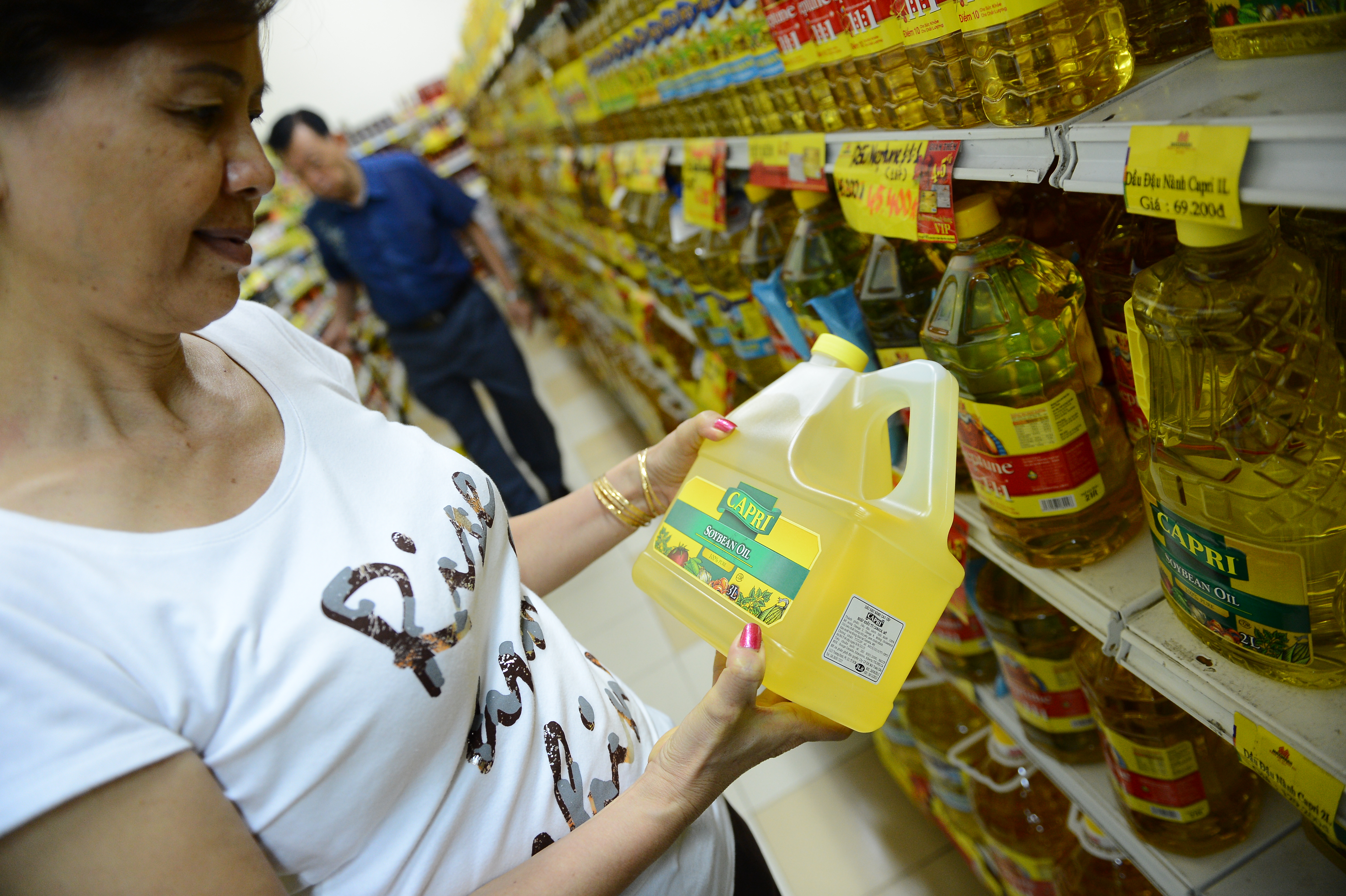Vietnam’s consumer price index (CPI), the main indicator of inflation, rose 0.4 percent in January-September, a decade-low rate, according to the General Statistics Office (GSO) of Vietnam.
The CPI decreased 0.21 percent month-on-month in September, the GSO said, adding that it surged 0.74 percent over the same period last year.
According to the GSO, the CPI deceleration this month was due to a drop in the prices of four out of 11 groups of goods and services used for calculation.
The biggest fall was recorded in the transportation group, at 3.17 percent, partly because of fuel prices plummeting on August 19 and September 1, the GSO said.
In addition, a decrease in cooking gas price earlier this month, a decline in demand for electricity due to cooler weather conditions, and a reduction in food product rates also had an impact on the September CPI, the statistical office elaborated.
Educational item prices saw the highest increase, up to 1.24 percent, due to the educational fee increase in 25 provinces and cities and rising demand for books, school supplies for students in the new school year, which began early this month, the GSO said.
The price of medical services in some provinces was also adjusted, which forced the price index of healthcare services nationwide to soar 0.5 percent compared to the previous month.
With the latest CPI figure, the Financial Times on Thursday said Vietnam is on the brink of deflation for the first time since records began.
It is a remarkable turnaround for a country long suffering from uncontrollable price rises, the UK-based newspaper remarked.
Vietnam has had considerable success in taming inflation, the newspaper said, adding that just two years ago prices inflated more than six percent but four years ago the rate was 22 percent.
Eric Sidgwick, country director of the Asian Development Bank in Vietnam, said the slowdown in CPI results mainly from falling commodity prices, especially oil prices and business production costs, newswire VnExpress reported.
With credit growth and rising consumer spending, inflation in the final months of the year may rise, putting pressure on inflation rates next year, Sidgwick told the Vietnamese newswire.
Credit growth in the Vietnamese banking system could accelerate to 16.5 percent this year, beating a government target and quickening from a rise of 14.16 percent last year, Reuters reported.
"Vietnam is not worried about deflation, we are far from this situation," Sidgwick asserted.
Like us on Facebook or follow us on Twitter to get the latest news about Vietnam!


















































